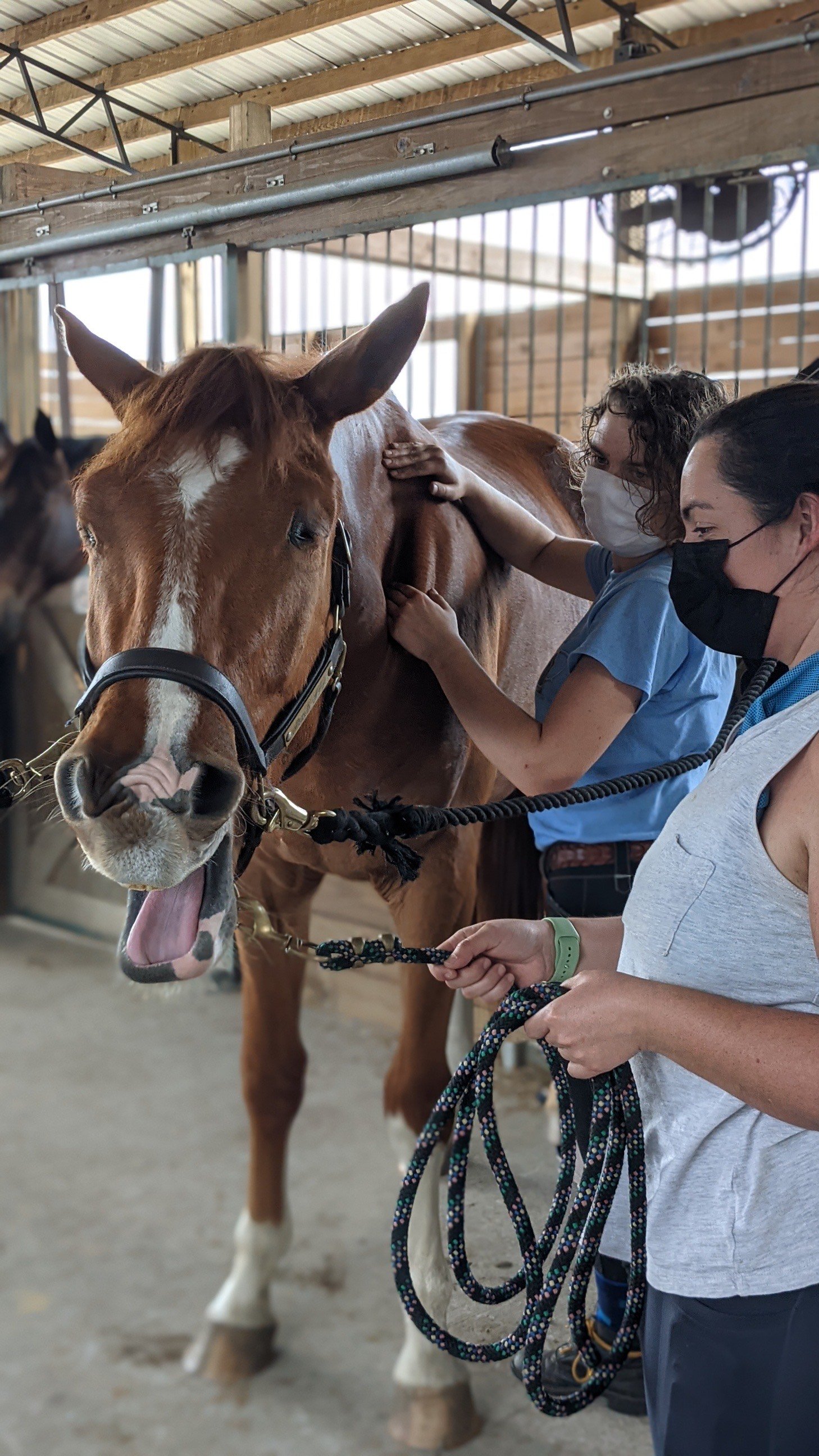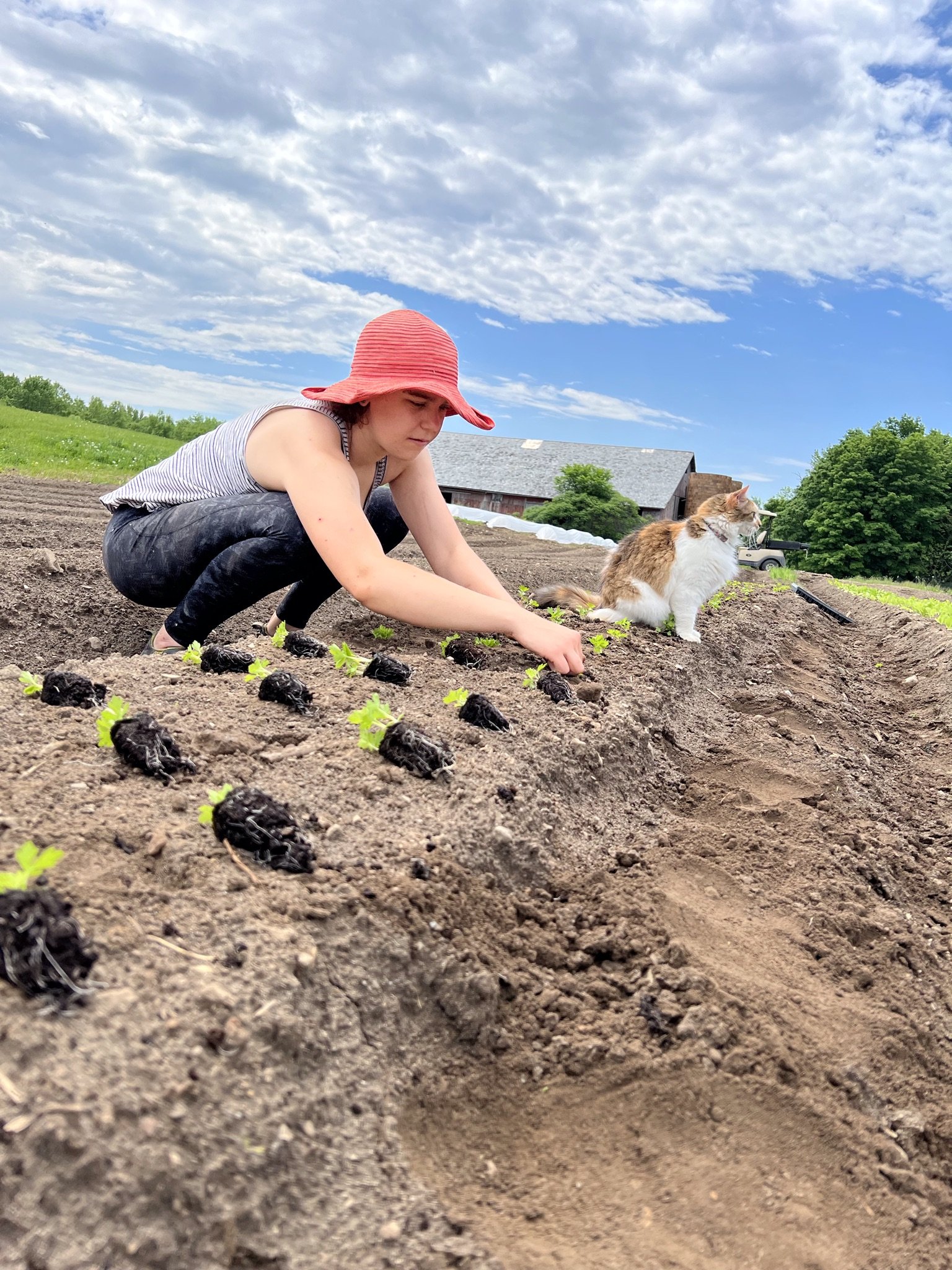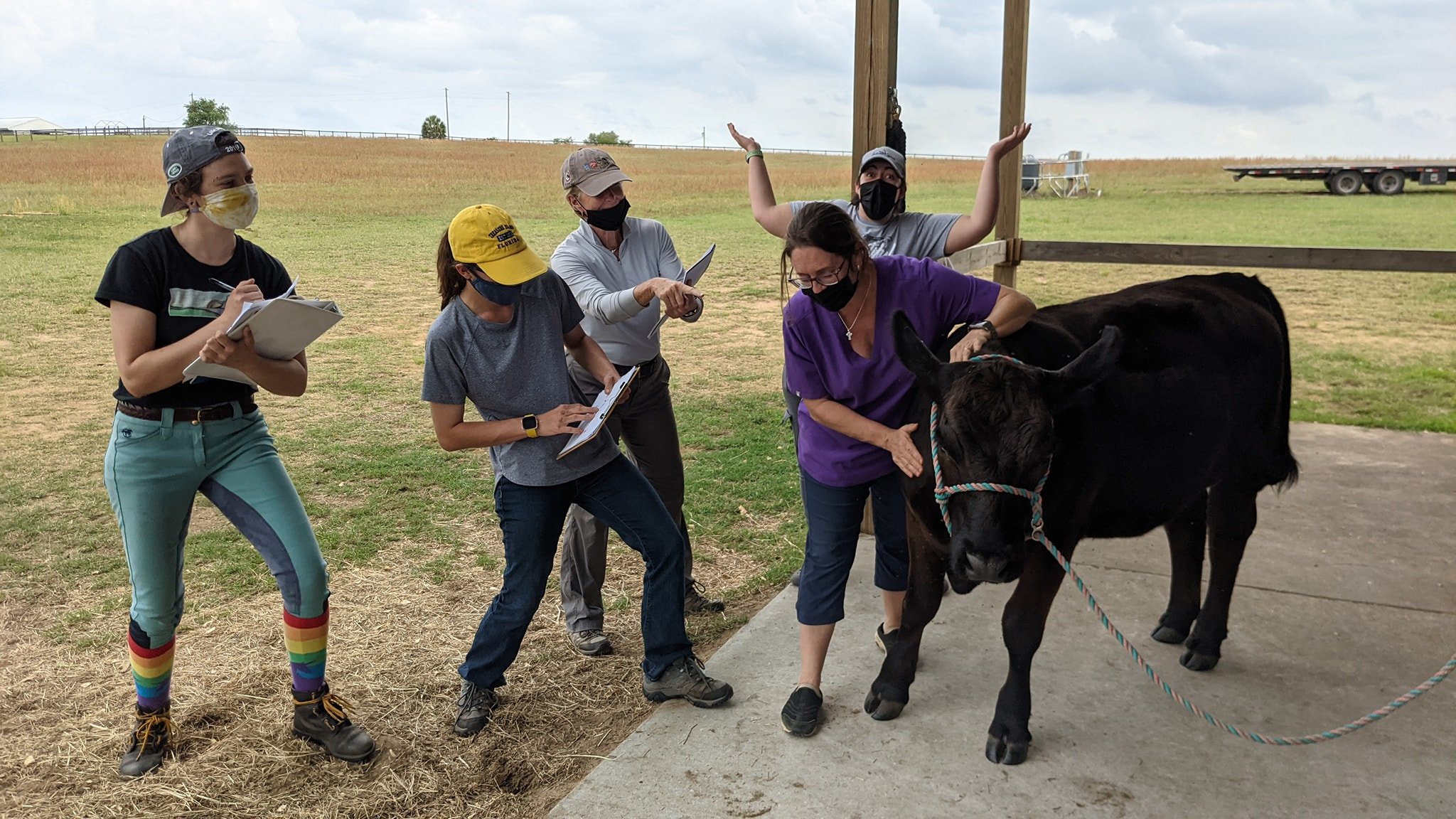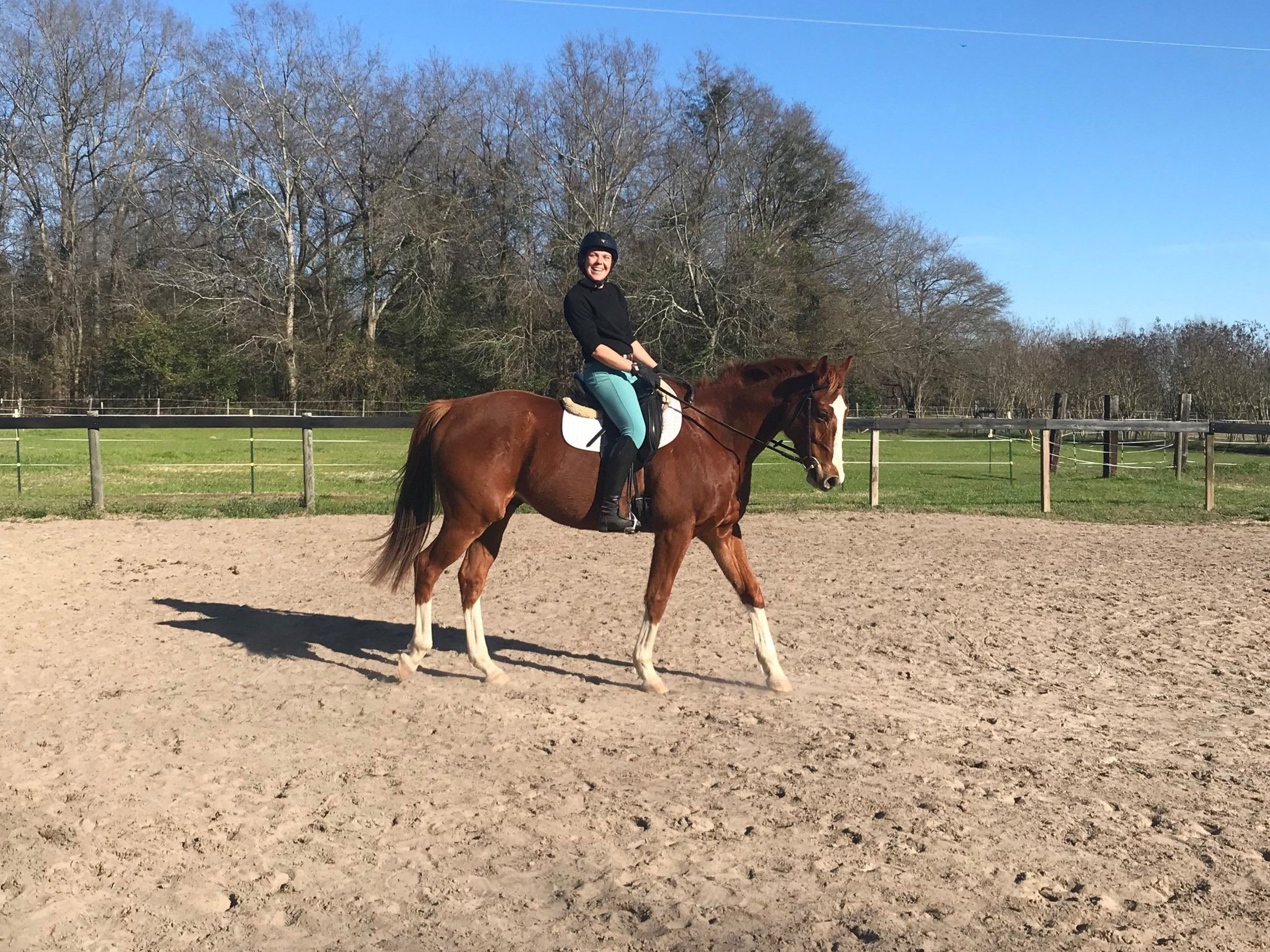Self-led learning, nuanced vocational training, and commitment to accessibility in equine science education
Saxon Alexandra (They/Them) is a life-long horse lover who was involved in Montessori education from a young age. Their early introduction to self-led education offered them a nuanced approach to the International Baccalaureate Full Diploma Program, and a drive to think outside of the box of their peers.
Saxon centered their extracurricular learning requirements around academic cell biology research, as well as the exploration of ethics in their involvement with horses, and their participation in the gender binary.
Throughout the course of the International Baccalaurate program, and after graduating, Saxon held a series of positions at the University of Tennessee, Knoxville including the departments of:
Biochemistry and Cellular and Molecular Biology Interdisciplinary Neuroscience
Entomology and Plant Pathology
They also held a series of positions at Warren Wilson College in the department of Biology and Environmental Sciences.
Frustrated with the prevalence of patriarchy and a lack of access to natural sunlight in the laboratory setting, Saxon moved to Aiken, South Carolina and worked on the performance eventing circuit in various capacities including exercise and re-education riding, private facilities management, and traveling to groom for top-level riders before enrolling in The Equine Institute’s advanced structural integration program.
By educating owners about equine husbandry and language signs, and by collaborating with other equine professionals, Saxon’s holistic approach to the application of the equine structural integration series sets the stage for positive rehab outcomes, and long-lasting restoration of healthy movement patterns in the horses that they work with.
Saxon shares their home with their spunky and loyal calico rescue cat, Julia. In their spare time, they enjoy crochet, reading, tea, hiking, caring for their houseplants, and amassing compelling rocks and minerals.

Saxon ices Bt toxin samples in The Department of Entomology and Plant Pathology at The University of Tennessee, Knoxville

Saxon is supervised by Equine Institute instructor Roxana Soler in The Equine Institute's introductory workshop April 2021

Saxon is supervised by their rescue cat Julia as they plant organic celery at Savage Gardens in North Hero, Vermont

Saxon, classmate Gabby of Victory Equine Services, and Zoe the cow pose with April, Roxana, and Lee of The Equine Institute during introductory practitioner training, April 2021
Formal education and professional certifications
The Equine Institute’s professional bodywork program is a highly selective, two-year intensive program that is affiliated with the National Board of Certification of Animal Acupressure and Massage (NBCAAM) and includes coursework recognized by the American Association of Veterinary State Boards’ (AAVSB) Registry of Approved Continuing Education (RACE)
Coursework requirements for the Advanced Fascial Integration Therapy Practitioner training include:
Four-hundred and four hours of individualized hands-on technique workshops with 1:1 or 1:2 teacher:student ratios, and discussion-based lectures with small student cohorts.
Three different sets of independent case studies reviewed and supervised by Equine Institute staff. Saxon conducted over 125 case study sessions with 33 horses of varying ages, breeds, and disciplines prior to graduating.
RACE coursework including nutrition, musculoskeletal disease, hoof health and mechanics, anatomy, biomechanics, and equine sociology
NBCAAM-compliant training in biosecurity and infectious diseases
Elective coursework in various disciplines such as parasitology, pasture and facility maintenance, and principles of laser and light therapy
Full curriculum breakdown by credit hours available upon request
Power of Touch for Animals is one of the foremost NBCAAM-sanctioned massage schools in the United States
Graduates of The Equine Institute’s Equine Structural Integration program have the unique opportunity to work directly with Lisa Ruthig, NBCAAM board member, and Director of Animal Programs at Bancroft School of Massage for a specialized intensive in Swedish Massage principles designed specifically for Structural Integration practitioners. This modified intensive course is an opportunity for Equine Institute graduates to engage with and learn principles of massage from a unique lens in a specialized small class size. In order to pass this intensive, Saxon completed 15 case study sessions with five separate horses of different breeds, ages, and backgrounds.
The National Board of Certification for Animal Acupressure and Massage (NBCAAM) is the primary independent certifying body for animal bodywork in North America
In order for practitioners to be eligible to apply for examination, they must comply with the pre-requisites and education requirements as described by NBCAAM’s website:
“The 200 hours of education should be broken down as below:
A Minimum of 50 hours course work in:
--Anatomy & physiology,
--Kinesiology (for bodywork)
--Pathologies
A Minimum 100 hours divided among the subjects of business, ethics, behavior, safety, etc.
These must include training in:
--Behavior of your target animal (horse or dog)
--Ethics (as pertains to bodywork or acupressure)
--Handling of your target animal
--Biosecurity (avoiding spread of disease)
An additional minimum of 50 hours of supervised in class hands-on work, which would include:
--Assessment and execution of bodywork skill being studied
--Benefits of massage/acupressure,
--Practice guidelines.
--10 of the 50 hours may include graded case studies”
Practitioners must also pass an independently graded examination to demonstrate their mastery of knowledge in all listed areas. NBCAAM certified practitioners are required to stay current on continuing education approved by the organization in order to maintain their status as board-certified practitioners.



